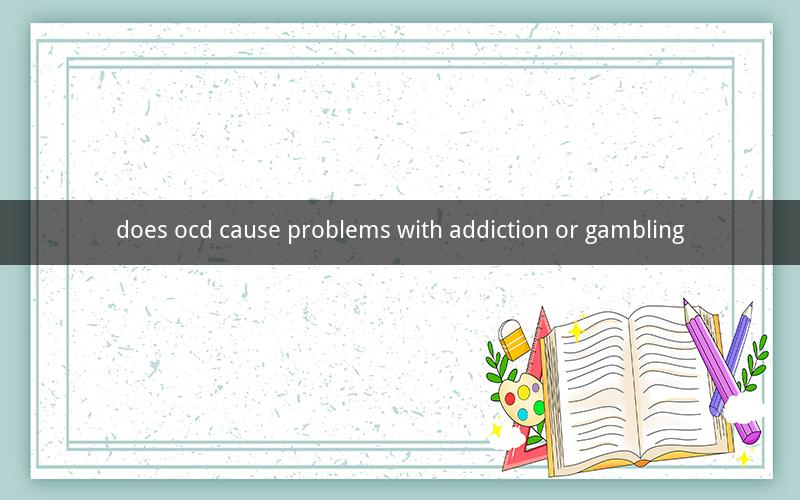
Table of Contents
1. Introduction to Obsessive-Compulsive Disorder (OCD)
2. Understanding Addiction
3. The Intersection of OCD and Addiction
4. The Role of OCD in Gambling Addiction
5. Common Challenges Faced by Individuals with OCD and Addiction
6. Treatment Approaches for OCD and Addiction
7. Conclusion
1. Introduction to Obsessive-Compulsive Disorder (OCD)
Obsessive-Compulsive Disorder (OCD) is a mental health disorder characterized by intrusive thoughts (obsessions) and repetitive behaviors or mental acts (compulsions). These thoughts and actions are often excessive, time-consuming, and can cause significant distress or interfere with daily functioning.
2. Understanding Addiction
Addiction, on the other hand, refers to a chronic, relapsing brain disease that causes compulsive drug seeking and use despite harmful consequences. It can manifest in various forms, including substance use disorders (e.g., alcohol, drugs) and behavioral addictions (e.g., gambling, internet).
3. The Intersection of OCD and Addiction
The intersection of OCD and addiction is complex and multifaceted. Individuals with OCD may be at a higher risk of developing addictions, and vice versa. This co-occurrence can exacerbate the challenges faced by individuals, making treatment more complex.
4. The Role of OCD in Gambling Addiction
OCD can play a significant role in the development and maintenance of gambling addiction. People with OCD may experience obsessions related to gambling, such as the fear of losing money or the need to control their gambling behavior. Compulsions may include checking bank accounts, counting chips, or engaging in other behaviors to alleviate anxiety.
5. Common Challenges Faced by Individuals with OCD and Addiction
Individuals with OCD and addiction often face a range of challenges, including:
- Increased anxiety and stress
- Difficulty in maintaining sobriety or controlling compulsive behaviors
- Impaired relationships and social functioning
- Financial difficulties
- Physical health problems due to substance use or compulsive behaviors
6. Treatment Approaches for OCD and Addiction
Treating individuals with both OCD and addiction requires a comprehensive approach. Treatment may include:
- Cognitive Behavioral Therapy (CBT), particularly Exposure and Response Prevention (ERP) for OCD
- Medication management, such as selective serotonin reuptake inhibitors (SSRIs) for OCD
- Addiction treatment, including detoxification, therapy, and support groups
- Family therapy or support
- Mindfulness and stress management techniques
7. Conclusion
The relationship between OCD and addiction is complex, and both conditions can significantly impact an individual's life. Recognizing the signs of both disorders and seeking appropriate treatment is crucial for recovery. With the right support and interventions, individuals with OCD and addiction can learn to manage their symptoms and improve their quality of life.
---
10 Questions and Answers on OCD and Addiction
Question 1: Can OCD lead to addiction?
Answer: Yes, individuals with OCD may be at a higher risk of developing addictions, as the conditions share common underlying factors such as impulsivity, stress, and the need for control.
Question 2: Are there specific types of addiction more common in individuals with OCD?
Answer: There is no specific type of addiction more common in individuals with OCD, but certain behaviors, such as gambling, may be more prevalent due to the specific obsessions and compulsions associated with OCD.
Question 3: How can one tell if they have both OCD and addiction?
Answer: Signs of both OCD and addiction may include intrusive thoughts, repetitive behaviors, increased anxiety, and impaired functioning. It is essential to seek a professional evaluation to determine the presence of both conditions.
Question 4: Can medication help with both OCD and addiction?
Answer: Medication can be effective for treating both OCD and addiction. SSRIs are commonly used for OCD, while medications such as naltrexone and bupropion may be used for addiction treatment.
Question 5: How can therapy help individuals with both OCD and addiction?
Answer: Therapy, such as CBT and ERP for OCD, and addiction-specific therapy, can help individuals develop coping strategies, manage triggers, and improve their overall well-being.
Question 6: Can family support help in treating both conditions?
Answer: Yes, family support can be crucial for individuals with both OCD and addiction. Family therapy can help improve communication, reduce stigma, and provide a support system for recovery.
Question 7: Are there any alternative treatments for OCD and addiction?
Answer: Yes, alternative treatments such as mindfulness, meditation, and yoga can complement traditional treatment approaches and help individuals manage stress and anxiety.
Question 8: Can individuals with both OCD and addiction lead a normal life?
Answer: With appropriate treatment and support, individuals with both OCD and addiction can lead a normal and fulfilling life. Recovery is a process, and ongoing management of symptoms is essential.
Question 9: Is it common for individuals with OCD to develop gambling addiction?
Answer: While not common, there is a higher risk of developing gambling addiction in individuals with OCD, particularly those who have obsessions or compulsions related to gambling.
Question 10: Can individuals with both OCD and addiction recover fully?
Answer: Yes, individuals with both OCD and addiction can recover fully with the right treatment and support. Recovery is a journey, and ongoing management of symptoms is crucial for long-term success.